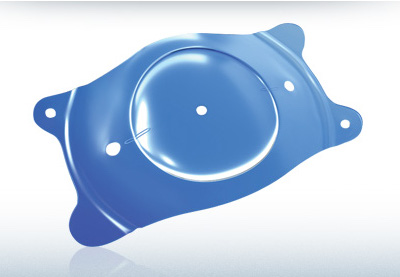Implantable Contact Lens
What Are Implantable Contact Lenses?
Implantable Contact Lenses (ICL), also known as Implantable Collamer Lenses, are medical devices used for the treatment of myopia, hyperopia & astigmatism. ICLs are phakic intraocular lenses, meaning that they work together with the natural crystalline lens in the eye.

The ICL Treatment Process
- Step #1: Pre-ICL Assessment
- Step #2: ICL Surgery
- Step #3: Post-Operative Follow-Ups
The Pre-ICL Assessment can be done during clinic operating hours on any day (Mondays – Saturdays). Please call, email, or fill in the online booking form to arrange an appointment with us. For contact lens wearers, please lay off your lenses for 5 days (soft lenses) to 2 weeks (hard lenses) before the assessment. This is to ensure accuracy of your eye test results and surgery.
During the Pre-ICL Assessment, patients will undergo a series of eye tests to determine their suitability for the procedure. If patients are found suitable and have decided to go for the surgery, we will proceed to book a surgery slot and order the ICLs.
ICL surgery can be done any day from Mondays to Fridays. It is usually done in the morning. On the day of ICL surgery, you will report to the Gleneagles operating theatre. Anaesthetic eye drops will be applied before the surgery. The ICL procedure takes around 20-30 minutes. During the surgery, a small incision is made in the cornea. Subsequently, the ICL is placed between the iris and the natural lens. The incision will heal on its own – no stitches are required. After the operation, you may feel tired and will be allowed to rest in the day ward. Once you are rested, you will be discharged for a follow-up check in our clinic.
It is important to follow the eye drop regime prescribed to you after surgery. You are strongly advised to come for 1-day, 1-week and 1-month follow-up visits. This is so that the doctor can monitor your recovery process and ensure that everything goes smoothly. Once you have been given the “clear” by your surgeon, you’re good to go. Enjoy your newfound clear vision, be free to do the things that you love!
FAQ
ICLs were granted FDA approval for the treatment of myopia in the U.S. in December 2005. ICLs received the CE Mark in Europe in 1997.
- During LASIK/Epi-LASIK, corneal tissue has to be removed
- In contrast, ICLs do not alter the shape or thickness of the cornea
- ICLs work in harmony with the natural eye and are biocompatible with the human body
ICLs are reversible
- LASIK/Epi-LASIK is a permanent procedure
- ICLs are an additive, reversible treatment
- ICLs can be removed or replaced to keep up with changing needs or new technology
- For people with prescriptions that are too high or corneas that are too thin, it may not be safe to undergo LASIK
- ICL is a safe and effective alternative for patients who are found to be unsuitable for LASIK
- ICLs are able to treat prescriptions of up to -20 diopters
ICL, or Implantable Collamer Lens, surgery involves inserting a corrective lens between the native lens and the iris inside the eye. This is a surgical option for people who have high refractive defects and are not candidates for LASIK or other surface laser procedures. The ICL corrects vision without changing the curvature of the cornea, giving a reversible and customizable approach to vision correction.
Implantable lenses, as opposed to typical contact lenses that are placed on the surface of the eye, are inserted within the eye to provide a more permanent vision correction solution.
Implantable contact lenses (ICL) are considered to be a long-term solution for vision correction. They are not expected to degrade with time. However, regular eye exams are recommended to evaluate overall eye health.
The cost of implantable contact lens surgery in Singapore can vary based on the clinic, the surgeon’s experience and the type of ICL performed.
While ICL surgery is generally safe and successful, there are some drawbacks, including the risk of infection, increased intraocular pressure, and glare or halos around lights, especially at night. Furthermore, like with any surgical operation, there is a tiny possibility of complications.
Eligibility for ICL surgery is determined by a number of parameters, including a stable visual prescription, good overall eye health, and enough corneal thickness. An ophthalmologist will conduct a thorough eye examination to evaluate if a person is a good candidate for ICL surgery.
The decision between ICL and LASIK is influenced by individual factors. ICL is appropriate for people with higher refractive errors or thinner corneas. LASIK, on the other hand, is a surface technique that reshapes the cornea. The selection should be made after a thorough consultation with an eye care professional based on your unique eye characteristics and lifestyle.
Book a Consultation
Get an eye checkup with us now!
Interested to fix a consult with our eye specialist? Get in touch with us!


